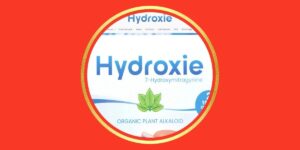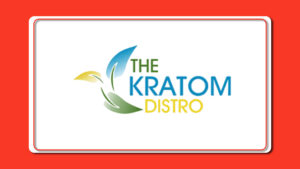Kratom censorship has become a major obstacle that affects vendors, together with their advocates, alongside their consumers, over the past few years.
The legal nature of kratom in most United States states does not halt major social media networks, payment gateways, and advertising channels from tightening their restrictions on kratom advertising and transactions.
An increasing number of restrictions against kratom content creates major barriers for legitimate businesses and decreases consumers’ ability to find trustworthy information about this botanical product.
Social media platforms, including Facebook and Instagram, along with TikTok, actively defeat discussions about kratom and similar to illegal substances and suppress specific content.
The restrictive environment of payment processors often causes them to shut down kratom business accounts, and advertising outlets completely prohibit kratom product advertising.
In this blog, we’ll explore the factors behind these restrictions while analyzing the most rigid platforms that implement kratom censorship and their effect on consumers and businesses, and introduce the mitigation techniques used by the kratom community.
Why Is Kratom Facing Online Censorship?
Kratom is a botanical substance that originates from the Mitragyna speciosa tree, and Southeast Asian populations have utilized it for centuries.
At the federal level, the United States allows Kratom, but it exists within unregulated territories. Because the FDA failed to approve any medical applications of kratom, these content restrictions have taken place across digital platforms.
Key Reasons Behind Kratom Censorship
- Regulatory Pressure: The FDA and DEA have issued warnings about kratom, prompting platforms like Facebook and Instagram to restrict related content.
- Misclassification as a “Drug”: Many social media algorithms flag kratom alongside controlled substances, leading to automatic bans.
- Payment Processor Policies: Companies like PayPal and Stripe often block transactions for kratom sales, citing high-risk categorization.
- Advertising Bans: Google Ads and Facebook Ads prohibit kratom promotions, making it difficult for vendors to reach customers.
The social media limitations against kratom create severe obstacles for both authentic businesses trying to operate and consumers who need to identify trustworthy information.
Platforms Censoring Kratom
Facebook, together with Instagram and TikTok, has established content restrictions for kratom-related information among its large user bases.
Want to test it for yourself? You can check the search results of kratom or kratom tea by entering these terms into the search fields of these apps.
The search outcomes displayed on the page will probably show no results. The platform will censor videos and users, together with business accounts and other content sections.
The search engine on TikTok generates no results when users query words such as “kratom.” The TikTok warning appears before search results for tobacco products, although the app maintains the display of additional search results below it.
TikTok presents no warnings when users search for alcohol or 7OH, as well as several other psychoactive substances.
On Facebook and Instagram, you’ll be greeted with a warning that says, “If you see the sale of drugs, please report it.” On TikTok, the current message in response to a search for kratom is “Be informed and aware: Some substances can be dangerous when used or misused.
Where Are the Restrictions?
1. Facebook & Instagram (Meta)
- Shadow banning: Kratom-related posts often receive reduced visibility.
- Account suspensions: Pages discussing kratom risk are being taken down without warning.
- Ad bans: Paid promotions for kratom are strictly prohibited.
2. TikTok
- Content removal: Videos mentioning kratom are frequently taken down for violating community guidelines.
- Hashtag suppression: Searches for #kratom yield limited or no results.
3. Google & YouTube
- Search de-prioritization: Kratom vendors struggle to rank organically.
- Video demonetization: Creators discussing kratom can’t earn ad revenue.
4. Payment Processors (PayPal, Stripe, Square)
- Sudden account freezes: Businesses report funds being held without explanation.
- Termination of services: Many vendors must rely on alternative payment methods.
Inconsistent Content Policies: Why Some Substances Get a Pass While Others Are Censored?
The set of content limitations does not have a uniform application when it comes to psychoactive substances. Search results for tobacco-related queries show a warning notice displayed above the many search results.
The search for terms such as tequila, together with various alcoholic drinks, produces an endless sequence of content while omitting any safety warnings.
Community searches containing 7-hydroxymitragynine (7OH) are treated differently from other searches. 7-hydroxymitragynine appears naturally in minimal quantities in kratom leaves, but processors now manufacture mass-produced untested versions by synthesizing the chemical.
Users can perform 7OH searches on multiple social media platforms instead of being able to search for kratom, even though kratom is not banned on these platforms, which shows their content restriction methods are inconsistent.
A Summary of Meta’s Restricted Goods and Services Policy
Facebook and Instagram utilize the Restricted Goods and Services policy to determine their content bans for various substances as well as advertisements.
The platform concentrates its ban enforcement on unlawful and heavily controlled products alongside potentially unsafe items.
These are the key points of Meta’s Restricted Goods and Services policy:
- Illegal Products and Services: Meta bans content promoting illegal goods and services, including drugs, firearms, explosives, and stolen goods.
- Drugs and Pharmaceuticals: Content related to the sale or distribution of certain drugs is prohibited. This includes “high-risk” drugs, drugs being used for non-medical purposes, prescription medication, entheogens, cannabis, and other controlled substances.
- Health-Related Claims: Meta prohibits users from making exaggerated or misleading health claims, including supplements or treatments that have unproven health benefits.
- Regulated Goods: Some goods that are legal but highly regulated—like alcohol or tobacco—are subject to strict advertising rules; content related to these goods may be allowed in certain contexts, but with limitations.
- Age Restrictions: Meta restricts ads for products like gambling, adult items, weight loss products, and certain financial services to users over 18 years old.
How Kratom Censorship Affects Consumers & Businesses
1. For Consumers
- Limited access to information: Reliable sources are buried under misinformation.
- Difficulty finding trusted vendors: Legitimate sellers are overshadowed by black-market operators.
- Increased risk of low-quality products: Censorship drives some buyers to unregulated sources.
2. For Businesses
- Marketing challenges: Traditional digital ads are off-limits, forcing reliance on SEO and word-of-mouth.
- Financial barriers: Payment processors blocking transactions disrupt sales.
- Brand vulnerability: Social media bans can erase years of community-building overnight.
Despite these obstacles, many in the kratom industry continue to adapt, using alternative platforms like Telegram, Discord, and niche forums to maintain communication.
How the Kratom Community Is Responding
1. Advocacy & Education
The American Kratom Association (AKA) combats false information by working for fair regulations along with other entities. Providing education to both lawmakers and public audiences forms an essential strategy toward stopping unjustified censorship.
2. Alternative Marketing Strategies
- SEO & content marketing: Many vendors focus on blog posts and organic search traffic.
- Email newsletters: Direct communication helps bypass social media bans.
- Grassroots campaigns: Some businesses rely on customer referrals and community support.
3. Legal & Legislative Efforts
Multiple states have adopted the Kratom Consumer Protection Act (KCPA) as their framework to safeguard kratom products while preventing unwarranted product bans. The implementation of additional state-level protection measures will create legitimacy for kratom products and cease censorship practices.
Alternative Platforms that Allow Discussion of Kratom without Censorship
Writing content on platforms dedicated to eradicating your voice proves draining to many people. For those who want to avoid censorship, there exist alternative spaces dedicated to free kratom-related discussions.
Kratom exists on many alternative platforms despite Facebook, Instagram, and TikTok making attempts to hide it from users who consult their typical social media channels.
Here are platforms that currently allow open discussions of Kratom
- YouTube: YouTube provides deep kratom-related information readily available to its users. Online sources name YouTube as “YouTube University” because users can access extensive kratom content, including documentary materials and personal accounts with direct user experience.
Watching kratom-related videos on YouTube will reveal insightful information about kratom from personal users who actively consume it. Your kratom research should begin with The Kratom Channel.
- Reddit: Reddit is another great option. Not a fan of videos? Readers and discussion enthusiasts possess different scales of preference. The kratom subreddits provide users access to current guidance coupled with individual testaments as well as ongoing legal developments.
- X (formerly Twitter): X provides space for kratom-related discussions that are still active without censorship. The value of X as a resource continues through its ability to deliver both legal kratom updates and breaking news about this product to its users.
- Double M: Double M is an online forum specifically dedicated to Kratom. They limit vendors’ ability to self-promote.
- Kratom Real Talk: Kratom Real Talk is a private group hosted on a platform called Skool. You can ask your own questions and join group discussions about Kratom.
Final Thoughts
The digital restrictions against kratom create severe challenges for users; however, the community successfully develops solutions.
The widespread implementation of platform restrictions creates more problems than it solves and potential risks because it forces discussion into hidden areas where accurate information becomes difficult to locate.
Smarter regulation combined with open dialogue represents the path toward resolving the matter.
The combination of advocacy support and platform creation, and fair policies with technology companies, enables responsible kratom discussions within a protected safety framework.
The kratom community demonstrates success in facing this challenge based on staying persistent and cooperating.
Check These Out:


































